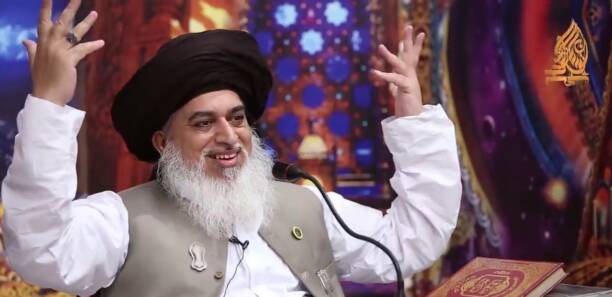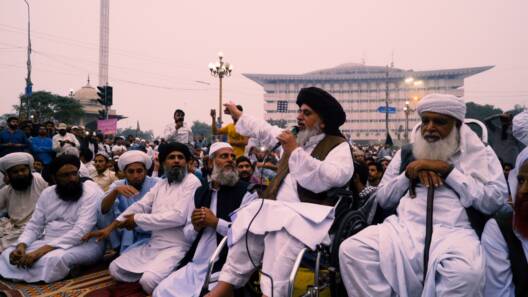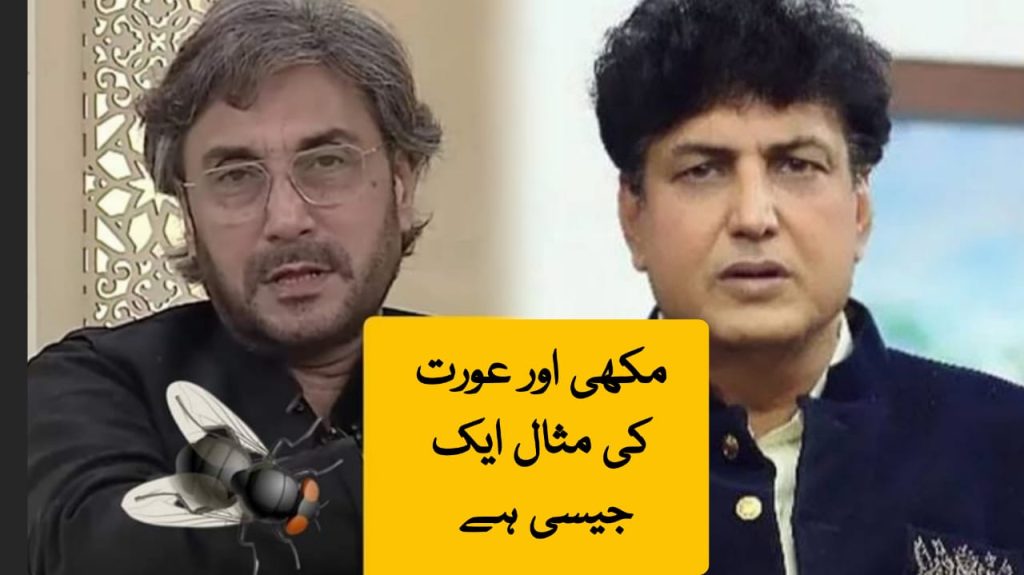We filmed with Khadim Hussein Rizvi for our film “The Accused: Damned Or Devoted?” We found Khadim to be very charming. He was like a Bond villain in his wheelchair with a Persian cat. He spoke powerfully and didn’t sound like a politician – I think people were able to relate to him and understand where he’s coming from.
One of the biggest draws of his personality was that he had this viewpoint of, “If I’m found guilty of corruption, chop my head off.” He had massive appeal, pushing an Islamic socialist agenda, an agenda empowering the poor people of Pakistan, the people who’ve largely been ignored by the elite and corrupt politicians.
It was an attractive story (a story that still resonates even after his demise). This coupled with his plain-clothed appearance and the fact that he was a great orator. He was not the run-of-the-mill politician – not even the typical religious politician – and Trump’s popularity was based on that too.
But ultimately – Rizvi was a bigoted despot, an ambitious and power-hungry man selling Islam for votes. Religion is a very important part of Pakistani identity and religious populism is a platform that Rizvi was able to use successfully to recruit so much power. And of course he also has some help from the Pakistani establishment. So ultimately he was also a puppet.



Because the majority of people in Pakistan are ideologically aligned with his belief that the blasphemy laws should be preserved, other really big politicians like Imran Khan align with people like Rizvi when convenient. They use them in politics to join together their support base. The fruits of this political performance are evident to this day-
From Priyanthi Kumara’s uncalled-for lynching over removing a TLP sticker to a woman being given a death sentence over for an anti-religious conversation over WhatsApp, I sometimes wonder where all the humanity and tolerance we once had went?
Rizvi said that Islam actually dictates the protection of minorities. But then, on the other hand, he clearly attacked minorities. Additionally, he used religion and blasphemy against people of the same faith. Most of the victims of the Blasphemy laws are actually Muslims themselves.
Islam is used in this unfortunate way to get people rallied up in Pakistan and get political support really quickly. Islam is used as currency in that way. That in its own right is actually kind of sacrilegious, it’s kind of going against the merit of the faith.
How much people like Rizvi are willing to sacrifice for power – that is scary. That to me is perhaps most frightening.
Our state periodically decides to use moral policing as a strategic tool when it is feeling particularly fascist. Rizvi’s followers are tied to that moral policing.



Having said that – I hope this film can open a conversation so people are able to speak about blasphemy law without being scared. What can happen is that we can discuss it, revisit it and listen to Islamic scholars and theologians who disagree with current interpretations of the law and how it’s been implemented in Pakistani law.
I hope the film can give [scholars and theologians] the space to weigh in. There have been murmurings especially after the Asia Bibi case and even the way people reacted to Mashal Khan’s death, as you hear from Mashal’s father who says they may have killed Mashal Khan but they cannot kill an idea, that there’s the idea for a law to hold people accountable for falsely accusing someone. That would be an important amendment to prevent further danger and misuse, which is what needs to be curbed and addressed.
I just want my film to open up that dialogue. I want Khadim Hussein Rizvi’s followers to see it too so they can judge for themselves what kind of a man he was. Was he genuine in his faith or was he using his faith as a veneer for his political desires.
Written by Mohammed Ali Naqvi
What do you think of the story? Tell us in the comments section below.
















